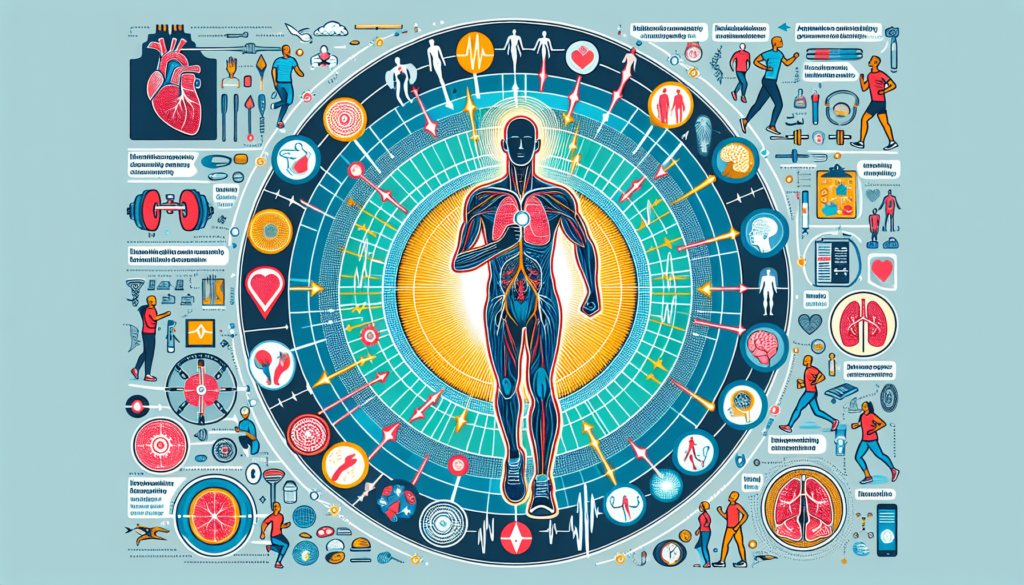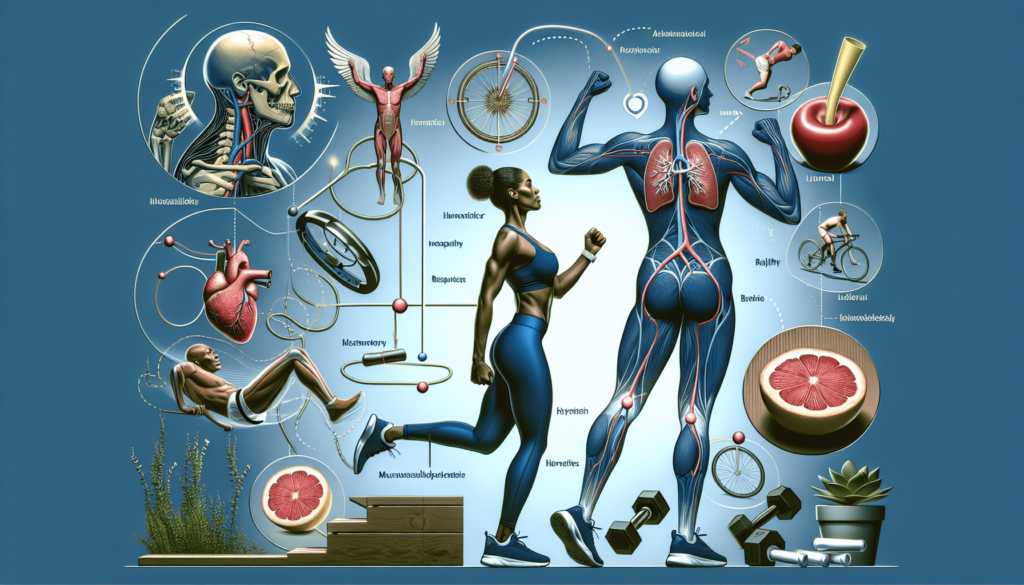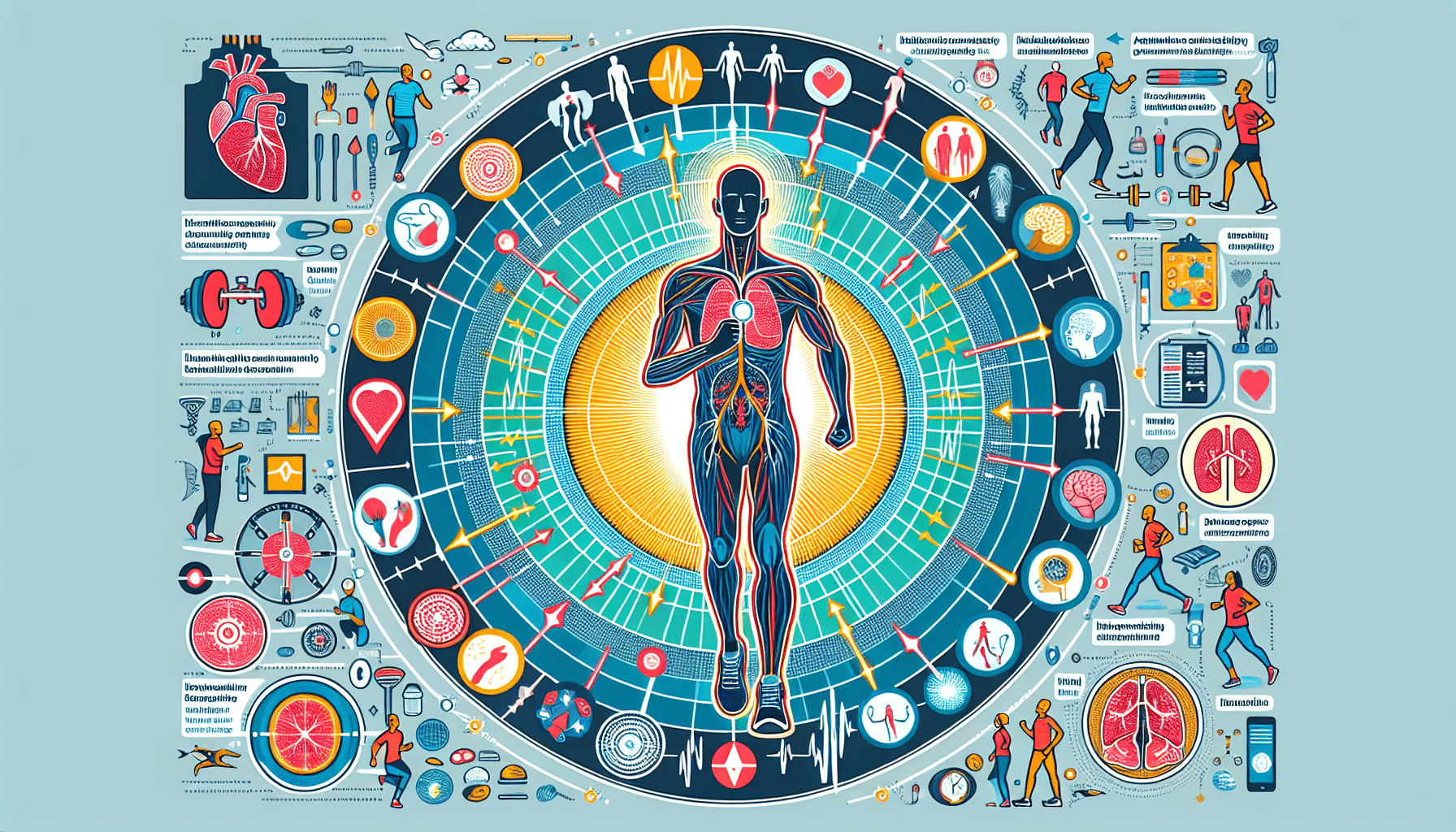Regular exercise plays a key role in enhancing overall physical health by benefiting various body systems. From improving cardiovascular function to boosting bone density, exercise provides numerous advantages that positively impact your body. By engaging in fitness routines, you can increase your endurance, strengthen your muscles, and improve your flexibility. Additionally, regular exercise helps manage weight, lowers the risk of chronic diseases, and improves mental well-being. Embracing an active lifestyle not only keeps you physically fit but also promotes longevity and a higher quality of life. So lace up your shoes and start reaping the vast benefits that regular exercise offers for your overall physical health. Regular exercise offers numerous benefits for overall physical health. Not only does it improve cardiovascular health, but it also enhances respiratory function, helps maintain a healthy weight, promotes muscle strength and endurance, increases flexibility, enhances bone density, boosts the immune system, improves mental health, promotes better sleep, and reduces the risk of chronic diseases. In this article, we will delve deeper into each of these areas and explore how regular exercise positively impacts your overall physical well-being.

Improves Cardiovascular Health
Regular exercise plays a crucial role in improving cardiovascular health. It reduces the risk of heart diseases by preventing the buildup of plaque in the arteries and lowering cholesterol levels. Engaging in physical activity, such as jogging, swimming, or cycling, helps strengthen the heart and improves its efficiency. This results in a more efficient blood flow, delivering oxygen and nutrients to the body’s tissues more effectively. By incorporating exercise into your routine, you can significantly reduce the risk of cardiovascular diseases and improve your overall heart health.
Enhances Respiratory Function
Exercise not only benefits the heart but also enhances respiratory function. Regular physical activity strengthens the respiratory muscles, including the diaphragm and intercostal muscles. This leads to improved lung capacity and an increased ability to take in oxygen. By engaging in activities that raise your heart rate, such as running or aerobic exercises, you can improve your breathing efficiency and overall respiratory function. This, in turn, allows your body to better oxygenate your muscles and organs, promoting optimal health and vitality.
Maintains Healthy Weight
Maintaining a healthy weight is essential for overall physical health, and regular exercise is a key factor in achieving this. Physical activity burns calories, helping you create a calorie deficit necessary for weight loss. It also boosts metabolism, making it easier to maintain a healthy weight in the long run. By incorporating exercises that combine cardiovascular activities, such as brisk walking or jogging, with strength training exercises, like weightlifting or bodyweight exercises, you can effectively manage your weight and prevent weight gain.

Promotes Muscle Strength and Endurance
Regular exercise is vital for promoting muscle strength and endurance. Strength training exercises, such as weightlifting or bodyweight exercises, help build lean muscle mass, increase strength, and improve power. These exercises challenge your muscles, causing them to adapt and grow stronger over time. By regularly engaging in strength training, you can improve your muscular endurance, allowing you to perform everyday tasks with ease and decreasing the risk of muscle-related injuries.
Increases Flexibility
Flexibility is often overlooked but is a vital component of overall physical health. Regular exercise improves range of motion in joints and muscles, making everyday movements easier and more comfortable. Engaging in activities such as yoga or Pilates can greatly enhance flexibility. These exercises involve stretching and actively working on improving mobility. By increasing flexibility, you can prevent injuries, relieve muscle tension, and improve your overall physical performance.
Enhances Bone Density
Exercise is crucial for maintaining and enhancing bone density. Weight-bearing exercises like walking, jogging, or dancing stimulate bone growth and remodeling. This helps to prevent the loss of bone tissue and reduces the risk of osteoporosis, a condition characterized by weakened bones. Regular physical activity also improves overall bone health and reduces the risk of fractures or injuries. By engaging in exercises that specifically target bone density, such as weightlifting or resistance training, you can significantly improve your bone health and overall physical well-being.
Boosts Immune System
Regular exercise has a positive impact on the immune system. Physical activity increases the circulation of antibodies and white blood cells in the body, enhancing immune response and reducing the risk of chronic diseases. Engaging in moderate-intensity exercises, such as brisk walking or cycling, for at least 30 minutes a day can boost your immune system. By prioritizing regular exercise, you can fortify your body’s defense mechanisms and reduce the likelihood of falling ill.
Improves Mental Health
Exercise not only benefits physical health but also plays a significant role in improving mental well-being. Regular physical activity has been shown to reduce symptoms of anxiety and depression, boost mood, and increase self-esteem. This is due to the release of endorphins, also known as “feel-good” hormones, during exercise. Engaging in activities you enjoy, such as swimming or dancing, can have a positive impact on your mental health, leaving you feeling happier and more content.
Promotes Better Sleep
Getting enough high-quality sleep is crucial for overall physical health, and regular exercise can help in achieving this. Physical activity helps regulate sleep patterns, making it easier to fall asleep and wake up at consistent times. Regular exercise has also been found to improve sleep quality by promoting deeper and more restful sleep. By establishing a regular exercise routine, you can effectively diminish insomnia symptoms and ensure you get the rejuvenating sleep your body needs.
Reduces the Risk of Chronic Diseases
Engaging in regular exercise significantly reduces the risk of chronic diseases. Physical activity plays a vital role in preventing diseases such as diabetes, as it improves insulin sensitivity and helps regulate blood sugar levels. Additionally, regular exercise decreases the chances of certain types of cancers, such as colon and breast cancer. It also helps prevent metabolic syndrome, a condition associated with obesity, high blood pressure, and high cholesterol levels. By prioritizing regular exercise, you can actively reduce the risk of developing chronic diseases and improve your overall well-being.
In conclusion, regular exercise is essential for maintaining and improving overall physical health. By incorporating physical activity into your daily routine, you can reap the benefits of improved cardiovascular health, enhanced respiratory function, a healthy weight, increased muscle strength, flexibility, and bone density, a strengthened immune system, improved mental health, better sleep, and a reduced risk of chronic diseases. So get moving, find activities you enjoy, and prioritize your physical health — your body will thank you.

